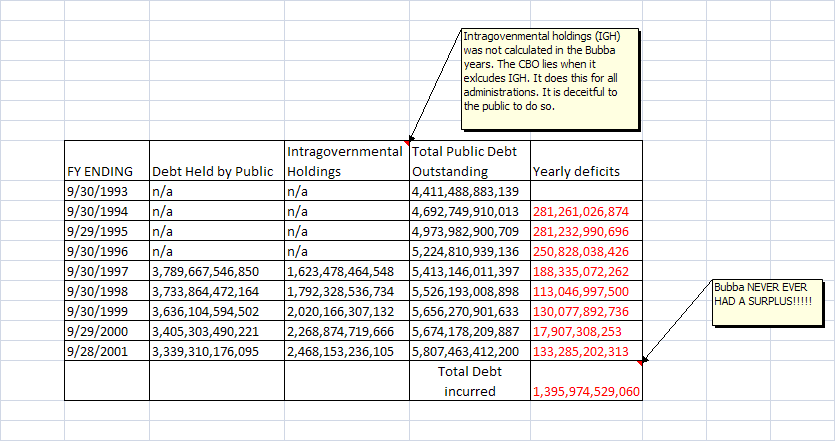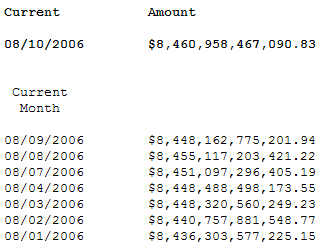About 'debt to the penny'|Is The #OWS StrikeDebt Movement The Way To Go For Debt Forgiveness
By now, many people are aware of the so-called Nigerian money scams and if your e-mail provider has an effective filter, it probably prevents your inbox from receiving such nonsense. Unfortunately, some of us aren't so lucky. While many of the e-mails are so blatantly absurd that they shouldn't fool anyone, you have to wonder if they're still deceiving some people since the e-mails continue to arrive. It should be obvious to a lot of people that it's a scam e-mail when the sender proudly announces he's from some country in Africa and it's somebody you don't know. What's really odd is how bold many of them are getting. A recent e-mail from a bank claiming to be in Ghana announces that it had $3.2 million for the recipient and demanded to know the name and address of his bank and his account number. In addition, the e-mail even demanded a copy of his passport and driver's license. Who, in their right mind, would comply with these kind of demands? The e-mail message purports to be from the "Head of Treasury" in Ghana, and warns that "we don't have time to waste due to work pressure on us." Does anyone think they're going to receive $3.2 million via "Swift Transfer," under these kind of conditions? Why would anyone give away $3.2 million? While the Ghana e-mail is a fairly transparent scam, what about the recent IRS phishing scam? Apparently someone with the ability to cut and paste graphics from the official IRS web site, concocted a scam in which e-mails were sent out to some sort of list in which the IRS claimed that, "based on your fiscal activity, you were entitled to a $995.00 refund," simply by filling out a form, which was returned to an e-mail address that clearly wasn't one belonging to the IRS. Surely most people don't think the IRS is in the business of monitoring your "fiscal activity" and determining when someone deserves a refund! A dead giveaway on the phony form you're asked to complete in order to get your $995.00 is the request for your driver's license number. Why mention the NIgerian money scams, the phishing scams, or the phony lotteries if there have been a number of warnings put out there about this already? Because there are so many variations of these scams, it's worthwhile to examine what they all have in common in order to remain immune to the temptation to fall for one of them. A number of e-mail scams have now branched out into online loans, charity donations, and government grants. All you have to do is provide personal information, and all this largesse can become yours. It isn't always necessary to provide a bank account or social security number. If they get your name and address, and enough other information about you that may seem irrelevant, just remember that it may be perfectly relevant to someone the con artist is talking to, trying to convince that someone that they're YOU! It is disturbing how many spam e-mails of this type can bypass some of the best spam blocking software out there, which ought to give the recipient a mild chill to know that someone out there has the sophistocation necessary to outfox your internet provider. The first thing you should do, is when you look at your inbox, see if you can see who the sender is, or who their intended recipient is. In many cases, it's amazing how many of these scam (and also spam) e-mails are sent to "undisclosed recipients," meaning they somehow have access to your internet provider's server without their consent. In some cases, your name might have been sold to a third party, unknowingly, if you ever bought a product from someone online and agreed to opt in to their mailing list in order to be notified of future offers. It's laughable how many of these scam e-mails claim you've inherited millions of dollars from some account over in Nigeria or the United Kingdom and some attorney over there wants to share the money with you if you'll just claim to be the beneficiary. Even more laughable is when another individual was told his e-mail address had won the lottery in the United Kingdom, when the sender had sent the exact same e-mail to about a dozen other e-mail addresses, all disclosed on the addressee line. For anyone "fortunate" enough to have inherited millions in a NIgerian bank account, or won millions in a UK lottery, the next step for those who play along with this, is usually to send some kind of advance fee to either cover such "costs" as taxes, security keeping fees, demurrage, or whatever other logical sounding "cost" comes to mind. The scam is simply to keep asking for more fees until the poor, unsuspecting soul either runs out of money or can't play along any more. This is the classic advance fee fraud. The other side of this, is getting you to give out personal information such as your passport or driver's license or bank account so that identity theft can be committed, or your bank account can be emptied. A lot of you may be thinking, "this is so obvious; I would never fall for such scams." There are still a few lessons we can learn from the more obvious scams we've just discussed. While a number of e-mail providers have gotten more sophistocated at shutting down this kind of junk mail with spam filters, the spammers have also gotten more sophistocated. Any time you give out information to someone online, even if it's a business or entity that you trust, you need to know if that business is giving out your information to someone else. Here's a classic example: an individual having tax problems suddenly found his postal mailbox (not his e-mail inbox, in this case) flooded with solicitations from firms offering him "tax debt resolution." One solicitor knew to the penny exactly what the tax debt was, and started off the letter, "Dear Joe, We can help you resolve your federal tax debt of $20,397.42." We live in a society where our privacy is supposed to be respected. How could that firm know the exact dollar amount of that person's tax debt? Credit bureaus. Selling information in order to make a buck. The point is, with the age of the computer, and the internet being the source of information that it is, it seems like it's easier than ever to access information on someone, and in some cases, there are web sites that will SELL you information on someone you are targeting. This could be a gold mine for scammers wanting to target an e-mail scam, perhaps posing as your friendly neighborhood bank or banker, asking you for personal information via e-mail. And if the credit bureaus are selling information about you, how can you know for certain that you aren't being targeted when asked to give out personal information of any kind? While this article doesn't intend to make the credit bureaus the object of criticism, the question should be raised about whether your identity is safe when the credit bureau gives out information about you without your knowledge. Of course, the credit bureaus are likely to tell you to subscribe to something like Lifelock or FreeCreditReport.com,, the latter of which is running a number of clever little jingles on TV with a great deal of frequency. With places like Lifelock and FreeCreditReport.com charging upwards of $30.00 a month to protect you from identity thieves, you can't help but wonder if the credit bureaus are part of the problem. Still, it very well could be that some con artist or bogus firm pretending to be in business to help consumers, for a price, could be getting their information from the credit bureaus. Hopefully, it's clear by now how transparent scams like the Nigerian money scam could easily lead to more sophistocated scams, tailored to fit an individual's particular weakness, and why you should be careful any time you give out information on yourself. |
Image of debt to the penny
debt to the penny Image 1
debt to the penny Image 2
debt to the penny Image 3
debt to the penny Image 4
debt to the penny Image 5
Related blog with debt to the penny
- fredfryinternational.blogspot.com/...Democrat Senator Dick Durbin. He said that 'Social Security does not add one penny to the debt. Not one penny.' His statement was in response to Republican demands that entitlement...
- theamateurmojoinvestor.wordpress.com/... often purchase this debt for pennies on the dollar and then go after these people to get a higher...pretty detailed “ The Debt Resistors...
- pieceofmind.wordpress.com/... for companies that will settle your tax debt for “pennies on the dollar.” IRS warns people to stay away from these Shylocks, but when people...
- savvyfrugality.blogspot.com/... you do. You have the right to request validation of the debt. Send the debt collector a letter (always...will purchase old debts for pennies on the dollar and come after you for...
- jezebel.com/... adult go about explaining the debt crisis to a child? By reducing it to a story about a greedy, penny-hungry dragon, of course! This last bit ...
- wonkroom.thinkprogress.org/...differently about the debt ceiling. During a speech on the House floor, Pence said that the debt ceiling needs to be increased because failure to do so could threaten Social...
- farquharlaw.wordpress.com/...we did not borrow another penny, the debt will continue to increase by 4 billion dollars... before. Default on the debt that we owe to the Chinese and others could...
- ["http:\/\/cashmoneylife.com","http:\/\/cashmoneylife.com\/privacy-policy\/"]...batch of pennies will be... off to coin ... with the ...our national debt. The last...Death+of+the+Penny+%26%238211%3B+US+Mint+to+Cease+Penny...
- alziralves.blogspot.com/...collector is eager to take your information in... no form, but the collector will seem like...let you know if the debt has ... by debt for pennies the cost, so if ...
- brandonpugh.wordpress.com/...law gives strength to sin from the fact that, for every transgression... a farthing of debt: it says, “Sin...Who shall lay anything to the charge of God’s elect...
Debt To The Penny - Blog Homepage Results
On average I find a penny a day. Beginning August...change certified mail to the United States Government to fund the National Debt. If I am unable to find any...
A mid-twenty something with an armfull of student loan debt, credit card bills, and a will to survive it all.
A site to discuss all things Money! How to get money. How to get out of debt. How to settle with your creditors for pennies on the dollar. How to create and live on a budget. How to invest and plan for the future. How to...
Related Video with debt to the penny
debt to the penny Video 1
debt to the penny Video 2
debt to the penny Video 3










0 개의 댓글:
댓글 쓰기